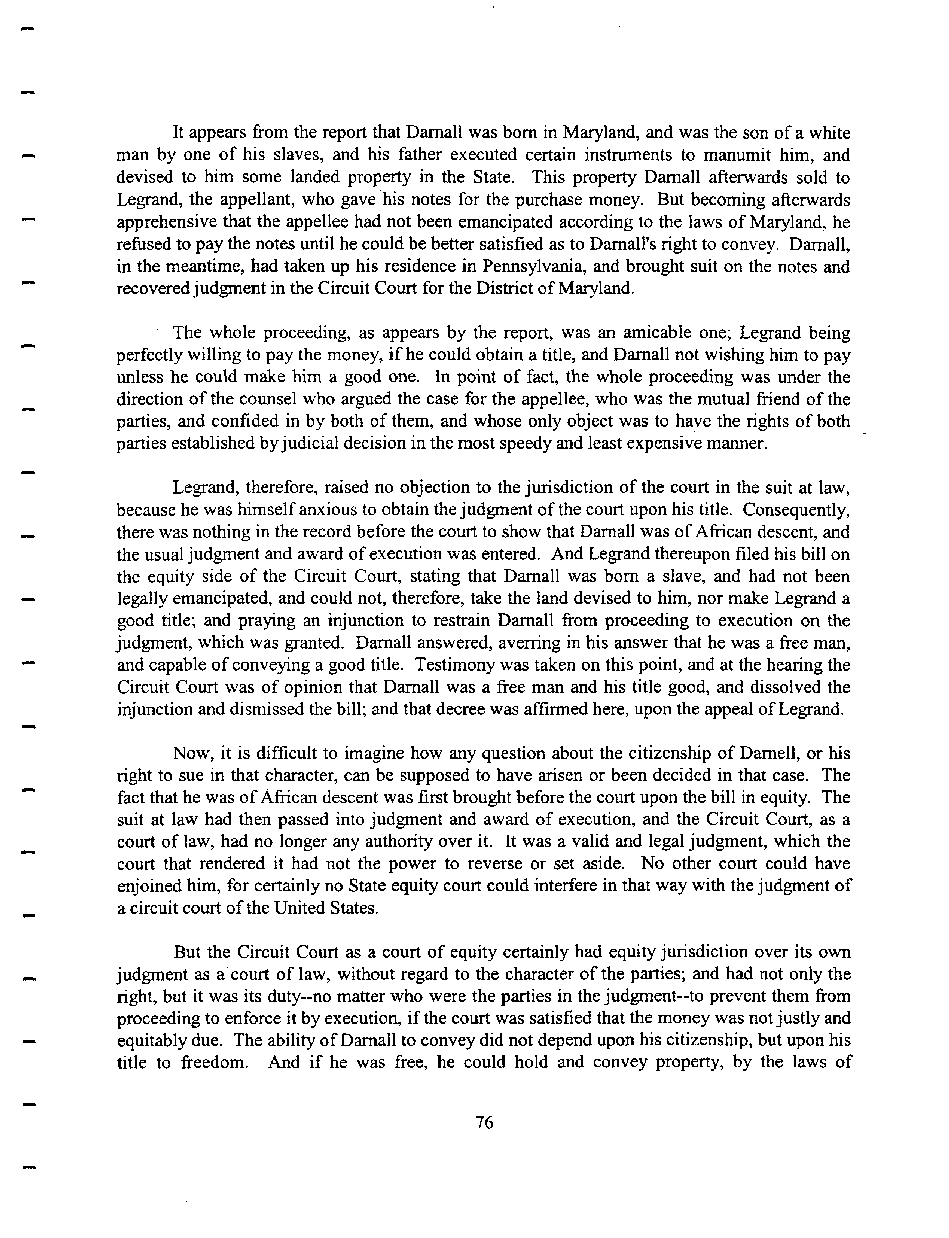|
It appears from the report that Darnall was born in Maryland, and was the son of a white
man by one of his slaves, and his father executed certain instruments to manumit him, and
devised to him some landed property in the State. This property Darnall afterwards sold to
Legrand, the appellant, who gave his notes for the purchase money. But becoming afterwards
apprehensive that the appellee had not been emancipated according to the laws of Maryland, he
refused to pay the notes until he could be better satisfied as to Darnall's right to convey. Darnall,
in the meantime, had taken up his residence in Pennsylvania, and brought suit on the notes and
recovered judgment in the Circuit Court for the District of Maryland.
The whole proceeding, as appears by the report, was an amicable one; Legrand being
perfectly willing to pay the money, if he could obtain a title, and Darnall not wishing him to pay
unless he could make him a good one. In point of fact, the whole proceeding was under the
direction of the counsel who argued the case for the appellee, who was the mutual friend of the
parties, and confided in by both of them, and whose only object was to have the rights of both
parties established by judicial decision in the most speedy and least expensive manner.
Legrand, therefore, raised no objection to the jurisdiction of the court in the suit at law,
because he was himself anxious to obtain the judgment of the court upon his title. Consequently,
there was nothing in the record before the court to show that Darnall was of African descent, and
the usual judgment and award of execution was entered. And Legrand thereupon filed his bill on
the equity side of the Circuit Court, stating that Darnall was bom a slave, and had not been
legally emancipated, and could not, therefore, take the land devised to him, nor make Legrand a
good title; and praying an injunction to restrain Darnall from proceeding to execution on the
judgment, which was granted. Darnall answered, averring in his answer that he was a free man,
and capable of conveying a good title. Testimony was taken on this point, and at the hearing the
Circuit Court was of opinion that Darnall was a free man and his title good, and dissolved the
injunction and dismissed the bill; and that decree was affirmed here, upon the appeal of Legrand.
Now, it is difficult to imagine how any question about the citizenship of Damell, or his
right to sue in that character, can be supposed to have arisen or been decided in that case. The
fact that he was of African descent was first brought before the court upon the bill in equity. The
suit at law had then passed into judgment and award of execution, and the Circuit Court, as a
court of law, had no longer any authority over it. It was a valid and legal judgment, which the
court that rendered it had not the power to reverse or set aside. No other court could have
enjoined him, for certainly no State equity court could interfere in that way with the judgment of
a circuit court of the United States.
But the Circuit Court as a court of equity certainly had equity jurisdiction over its own
judgment as a court of law, without regard to the character of the parties; and had not only the
right, but it was its duty—no matter who were the parties in the judgment—to prevent them from
proceeding to enforce it by execution, if the court was satisfied that the money was not justly and
equitably due. The ability of Darnall to convey did not depend upon his citizenship, but upon his
title to freedom. And if he was free, he could hold and convey property, by the laws of
76
�
|

